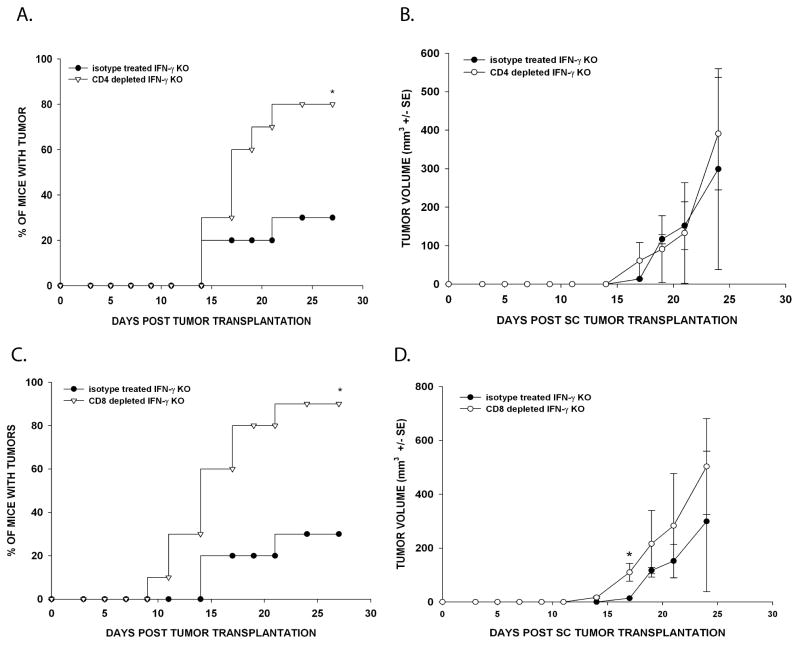Figure 2. IFN-γ-independent SC tumor rejection requires CD4+ T and CD8+ T cells.
(A) IFN-γ KO mice were treated with either isotype control antibody (rat IgG) or anti-CD4 antibody twice per week. Ad5E1 clone 2.1 tumor cells (5 × 104) were SC injected in the right flank. The percentage of mice with tumor was determined. Data represents the combined results of two independent experiments (N = 10/group/experiment). * P < .01, as determine by χ2 test. (B) The volume of SC tumors that grew in (A) was calculated from measurements by calipers three times per week (mm3 +/− SE). 3/10 mice developed tumor in the isotype group compared to 8/10 mice in the CD4 depleted group. (C) Animals were treated with either isotype antibody or anti-CD8 antibody twice per week. Ad5E1 clone 2.1 tumor cells (5 × 104) were SC injected in the right flank. Tumor growth was observed three times per week. Data represents the combined results of two independent experiments (N = 10/group/experiment). * P < .01, as determine by χ2 test. (D) The volume of SC tumors that grew in (C) was calculated from measurements by calipers three times per week (mm3 +/− SE). 3/10 mice developed tumor in the isotype group compared to 9/10 mice in the CD8 depleted group. * P < .05, as determine by Student’s t test.

